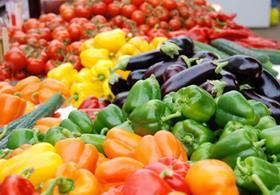
Fresh produce trade bodies Copa and Cogeca have called on EU heads of state and governments to approve draft guidelines on the future EU-UK relationship when they meet next week.
In a letter sent to chief EU negotiator Michel Barnier, the presidents of Copa and Cogeca welcomed the draft guidelines on the post-Brexit EU relationship with the UK drawn up by EC president Donald Tusk.
“As trade is very integrated, Copa and Cogeca underline serious concerns about the potential impact on farmers and agri-businesses on both sides as a result of the UK exit from the EU,' wroteCopa president Joachim Rukwied. 'It is important to minimise any disruption to trade. The European famers and agri-cooperatives strongly believe that, depending on the guarantees obtained, the UK should remain in the single market and customs union.
'If this is not possible, the EU and UK should find a new customs arrangement that enables frictionless trade as much as possible, whilst preserving the integrity of the single market. The Brexit negotiations must provide tariff-free trade between the EU and UK.”
Cogeca president Thomas Magnusson added: “We also call for the EU to seek the closest possible customs relationship with the UK and want simplified customs procedures, making use of latest technologies in order to prevent burdensome and costly bureaucracy which would threaten cross-border trade.This must be included in the EU’s upcoming guidelines and made a priority in the negotiations.
“We also welcome the European Commission’s draft Withdrawal Agreement which translates into legal terms the joint report from the negotiators of the EU and the UK on the progress achieved during phase one of the negotiations.”
Copa and Cogeca also said they agreed with the EU’s call on the UK government for clear and tangible proposals for the transitional and the future relationship, as soon as possible. 'Time is running out for businesses to make the necessary adjustments,' they said. 'An agreement must be reached as soon as possible in order to eliminate uncertainty and additional costs on farmers and agri-cooperatives.'






No comments yet